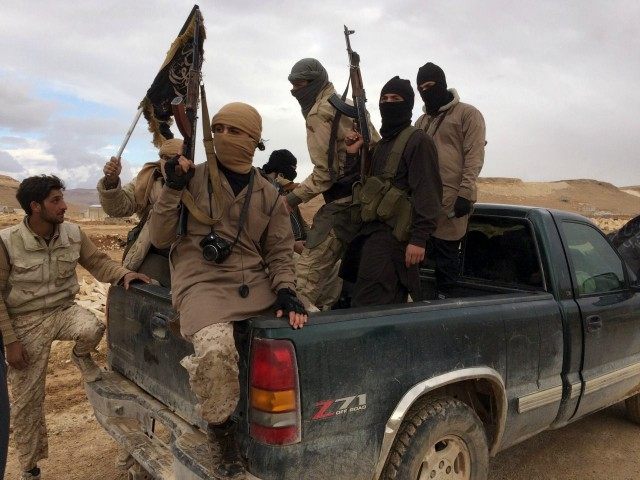Both the United States and Saudi Arabia have announced sanctions against four individuals, and two groups they are associated with, based on allegations they have provided financial support to global terrorism.
The Associated Press names one of the individuals receiving the sanctions as James Alexander McLintock, along with his charity organization, the Al-Rahmah Welfare Organization, which the U.S. Treasury Department identified as “a front organization that provides money for al-Qaeda, the Taliban, Lashkar-e-Taiba and other Afghan extremists groups under the guide of helping orphans.”
The UK Express said that McLintock, who is thought to be around 52 years of age, has described himself as a “committed jihadist” with combat experience in Afghanistan and Bosnia. He claims to have converted to Islam in his twenties, changing his name to “Yaqub McLintock.”
A Treasury Department spokesman said that McLintock “recruited Afghan insurgents to obtain photos of children, Afghan identity documents, and cell phone numbers.”
This material was used to create “falsified dossiers” of children in need, so the Ah-Rahmah Welfare Organization could collect over $175,000 in charitable donations, which were diverted to al-Qaeda and the Taliban. McClintock allegedly collected even more money from charities in the U.K. and Persian Gulf region.
The Associated Press lists the other three individuals included in this round of Treasury Department sanctions:
Abdul Aziz Nuristani and his Jamia Asariya Madrassa in Peshawar, Pakistan, which is suspected of supporting terror groups and recruiting students to become militant fighters.
Naveed Qamar, who has held several influential positions with Lashkar-e-Taiba, including running a training camp, supervising commanders from Karachi and helping raise money for the group.
Muhammad Ijaz Safarash, who has been a Lashkar-e-Taiba operative for several years, acquiring travel documents and facilitating financial transfers in Saudi Arabia.
The Jamia Asariya Madrassa was the other group included in the sanctions announcement. The Treasury Department described the madrassa as a “financial conduit to bring money into Pakistan,” and said individuals associated with the institution had also “facilitated the provision of housing in Peshawar for Arab fighters with ties to al-Qaida.”
“From terrorizing local populations to exploiting charities and religious institutions, al-Qaida, the Taliban, and Lashkar-e-Tayyiba have a long history of inflicting violence on Americans and our allies throughout South Asia and the Middle East,” said Adam J. Szubin, Acting Under Secretary for Terrorism and Financial Intelligence, in a statement on Thursday.
“Today’s action marks yet another step in Treasury’s efforts to financially cripple terrorist financiers and demonstrates the United States’ and Saudi Arabia’s shared resolve to target those who support terrorism,” Szubin continued.
According to the Associated Press, Treasury’s action “freezes any property they have within U.S. jurisdiction and bans Americans from doing business with them.”
As reported by Al-Arabiya, the Saudi Press Agency cited that nation’s Law of Terrorism Crimes and Financing, along with relevant royal decrees, and announced “any property or interest in property of these designated individuals and entities under Saudi jurisdiction are also frozen, and Saudi citizens are generally prohibited from doing business with it.”

COMMENTS
Please let us know if you're having issues with commenting.